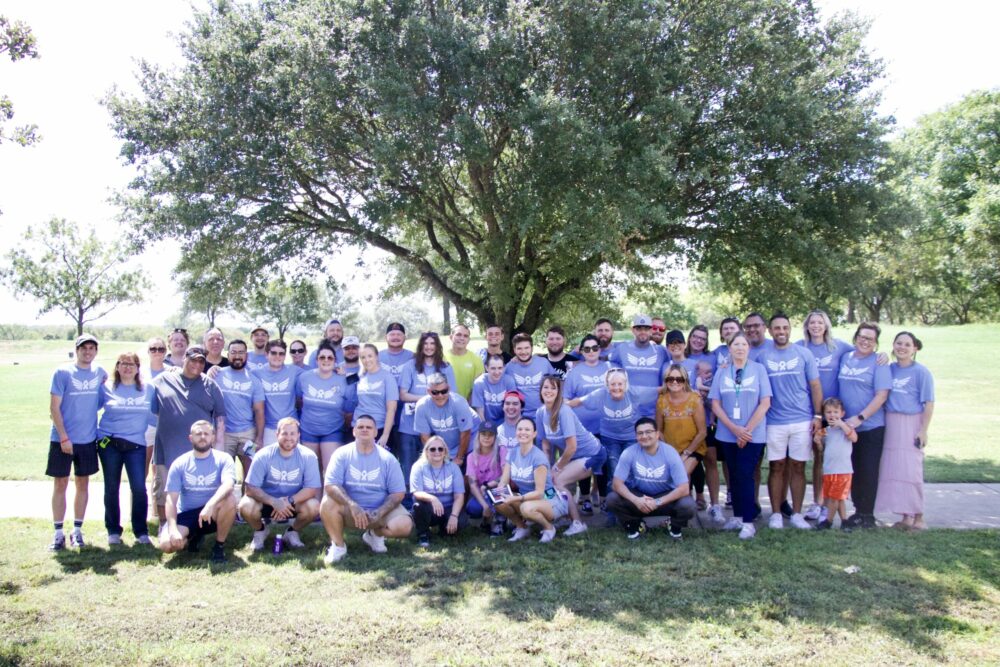Table of Contents
Ambien is a commonly used medication that can help people overcome insomnia and get a good night’s sleep, and can sometimes be helpful for other kinds of sleep disorders as well. You’ve probably heard of Ambien. It’s one of the better-known sleep aids, and not always for good reasons.
You’ve probably heard of the antics people can get up to while they’re on Ambien, and there are even reports of people cooking meals in their sleep!
But, the real problem with Ambien isn’t the sleepwalking or other things you might do while taking the drug. Those things can mostly be planned for and accommodated safely without causing too many problems.
Ambien, like many other sleep medications, is a medication that can be abused, can create dependence, and may even cause addiction in some users. Stopping Ambien, even if you aren’t addicted, may also come with withdrawal symptoms than can be difficult to manage.
Understanding the risk of withdrawal when you stop the medication and the risk of addiction while you take it is critical for anyone considering Ambien. You may want to talk with your doctor about these risks, especially if you have a history of addiction or chemical dependence on medications.
The more information you have, the better prepared you will be to manage Ambien responsibly and effectively.
With all that in mind, let’s talk about the side effects and symptoms of Ambien withdrawal, when and how withdrawal may indicate an addiction, and what you can do to manage Ambien withdrawal or seek addiction treatment.
AMBIEN WITHDRAWAL SIDE EFFECTS & SYMPTOMS
Ambien is typically taken as a short-term medication intended to help adults who struggle to get to sleep with occasional insomnia. It’s not a medication meant to be used daily or to deal with persistent insomnia.
When Ambien is taken longer than intended or too many nights in a row, it can create chemical dependence. That dependence leads to withdrawal symptoms because your body is used to operating with certain chemicals available that aren’t when you aren’t taking Ambien any longer.
It’s important to remember that chemical dependence and addiction are two different things. However, developing a chemical dependence can quickly become an addiction, especially if you don’t realize the dependence has formed.
That’s part of why it’s important to understand the symptoms and side effects of Ambien withdrawal. Knowing the symptoms will help you identify if you’re in withdrawal, which can help you recognize when you’ve been taking Ambien for too long or even if you form a chemical dependence too quickly to use the medication safely.
Some people form chemical dependence on certain drugs faster than others, while others may be more resistant and take longer. So it’s not a matter of willpower, when the drug is used responsibly, simply body chemistry.
Ambien withdrawal is most common in people who have been taking the drug for a long time, or who need a large dose for the medication to be effective. That said, there is a small chance of Ambien withdrawal any time you use the drug, even in short-term use at a low dose.
Here are some of the most common symptoms and signs you might be in Ambien withdrawal:
- Anxiety
- Confusion
- Delirium
- Insomnia
- Fatigue
- Panic attacks
- Aches and pains
- Tremors
- Headache
- Hyperventilation
- Nausea or vomiting
- Racing pulse
- Rapid breathing
- Restlessness
- Speech difficulties
- Sweating
- Uncontrolled crying
- Seizures (in rare cases)
The severity of your symptoms and side effects during Ambien withdrawal is impacted by how much Ambien you take and how long you’ve taken it. The longer you’ve taken Ambien, the more severe you should expect the withdrawal to be, including an increase in the severity of each symptom and how many symptoms you’re likely to get.
Similarly, the larger your dose of Ambien, the more severe your withdrawal symptoms are likely to be.
Very young and very old people may also have increased symptoms during withdrawal. They may also have an extended withdrawal that starts longer after their last dose than normal because it can take Ambien longer to clear their system.
AMBIEN WITHDRAWAL TIMELINE
Ambien withdrawal is a process and it can help to know how long it should last and what symptoms you will experience ahead of time. Planning for different withdrawal phases and ensuring you have the support you need is important if you want to successfully make it through Ambien withdrawal without taking more Ambien to ease your symptoms.
Understanding the withdrawal timeline may be especially important if you’ve been using Ambien recreationally. If you’ve taken Ambien by snorting or injecting the drug, which isn’t recommended and results in a more potent dose, you may have more severe symptoms than average, and you may also have a slightly different timeline for recovery.
Individual differences in how your body processes Ambien can also lead to significant differences in your withdrawal timeline.
All those factors mean that this timeline is an estimate, and your experience may differ slightly. However, if you experience extended withdrawal symptoms that last for 24 hours or longer than average, that may be a sign that something is wrong, and you should consult with a doctor to see if you need additional care.
If you aren’t sure what to expect when you’re going into withdrawal, most people report experiencing a flu-like sense of malaise with similar symptom severity. Some symptoms may be worse, but they should be manageable for most people.
5-8 Hours After Your Last Dose
Ambien has a short half-life, so you’ll typically start to feel withdrawal symptoms relatively quickly. If you’re using Ambien for sleep, you might have withdrawal symptoms when you wake up the next morning.
Most people don’t experience morning withdrawal, so getting withdrawal symptoms when you didn’t plan on stopping Ambien may be a sign that you have been taking more of the drug than you needed or maybe the beginning of chemical dependence and possible addiction-forming.
Symptoms usually start relatively mild, but you may have anxiety or a general malaise telling you something is wrong. It’s important to remind yourself that you expected this and to ensure you get plenty of hydration and a nutritious meal.
The First 24 Hours After Symptoms Start
During the first 24 hours, you’ll generally feel a bit worse throughout the day and may become restless or upset. Crying is a relatively common reaction during Ambien withdrawal, especially if you’ve been taking larger doses up to this point.
Fatigue will generally also start setting in on day 1 or 2, making other symptoms harder to handle, especially since insomnia is relatively likely. It’s a good idea to have low-energy entertainment and distraction options available to help you stay more comfortable if you’re tired but can’t sleep.
Day 2-5
The worst symptoms of Ambien withdrawal usually start between days 2-5 and typically start to subside within about 12 hours of the peak. That’s good news because the worst phase of Ambien withdrawal is usually relatively short-lived.
However, symptoms may still make you feel ill during this whole period, and it’s a good idea to cut back on work or even stay home while you’re dealing with Ambien withdrawal. That way, you can focus on healing and won’t have the added stress of pressure to perform at work.
Day 6-14
You may still have some lingering symptoms at the end of your acute withdrawal, but they should be mild and manageable – getting slightly better every day.
You should be able to start returning to normal activity in this phase but probably won’t feel 100% until at least two weeks from your last dose.
If symptoms aren’t starting to improve by this point, you should consult with your doctor to see if any underlying problems might be interfering with a normal recovery.
COULD YOU BE SUFFERING FROM AN ADDICTION?
Withdrawal after normal use of Ambien is relatively rare. If it were more common, Ambien wouldn’t be as popular or as common medication for insomnia as it is.
Having stronger withdrawal symptoms, or experiencing unexpected withdrawal, may be a sign that you’re dealing with an addiction and is almost certainly a sign that you should take less Ambien or talk to your doctor about effective alternatives.
Why is it a sign you should cut back?
All withdrawal symptoms are a sign that your body has developed a chemical dependence on the drug you’re taking and that it has complications when asked to function normally without it.
Dependence can happen with a wide range of medications – by itself, dependence isn’t necessarily a sign that something has gone wrong. But it can signify that it’s time to switch medications or that a specific medication isn’t a good fit for your needs.
The problem is that chemical dependence, your body needing and relying on a drug for normal function, can make it hard to stop taking that drug when you need to and may even make you start taking more of the drug between your normal doses or to get the same effects you used to.
When you start taking more to get the same effectiveness, that can quickly lead to an addiction in addition to the already existing chemical dependence.
Because withdrawal symptoms from Ambien are relatively rare when the drug is used as intended, getting those symptoms may be a sign that something has already gone wrong.
Unfortunately, people with underlying mental health concerns may be more likely to abuse Ambien and experience Ambien withdrawal. So, it’s important to talk to your prescriber if you have a mental health concern and are considering taking Ambien.
HOW TO MAKE YOUR DETOX PROCESS GO SMOOTH
Mitigating withdrawal symptoms is often important when you’re detoxing from any drug. But it may be especially important for drugs like Ambien, where common withdrawal symptoms include things like panic attacks and anxiety, because those symptoms may make you more likely to seek relief, even when you don’t want to.
If you’re going through withdrawal at home, it’s a good idea to have at least one other person there with you who can help you through the process. They should be prepared for your symptoms, and have a checklist of reasons to call in a medical professional or take you to an emergency room.
While complications are rare during Ambien withdrawal, they can happen.
If you don’t want to go through Ambien withdrawal at home, or have tried and not been successful in the past, you may want to consider going to a residential treatment center that can help. They may be able to help control the worst symptoms of your withdrawal, depending on your needs, and can help you rebuild and learn new coping mechanisms to create a healthier approach to life post-Ambien.
If you’re ready to overcome Ambien addiction, or just want help kicking a chemical dependence and moving forward with your life, there is hope. Contact a premier rehab facility to learn more about our treatment center, what treatment options are available, and the intake process to get started.
Infinite Recovery has strict sourcing guidelines and relies on peer-reviewed studies, academic research institutions, and medical associations for our references. We avoid using tertiary references as our sources. You can learn more about how we source our references by reading our editorial guidelines and medical review policy.
Sources:
- The Ambien Brand: Where millions have turned when having trouble falling asleep. home. https://www.ambien.com/. Accessed September 6, 2022.
- Osborn COK. How long does withdrawal from Ambien last? Verywell Mind. https://www.verywellmind.com/ambien-withdrawal-4685927. Published July 17, 2020. Accessed September 6, 2022.
- Lyu X, Hu Y, Zhao Y, et al. Euphoric effect induced by zolpidem: a case study of magnetoencephalography General Psychiatry 2022;35:e100729. doi: 10.1136/gpsych-2021-100729


















